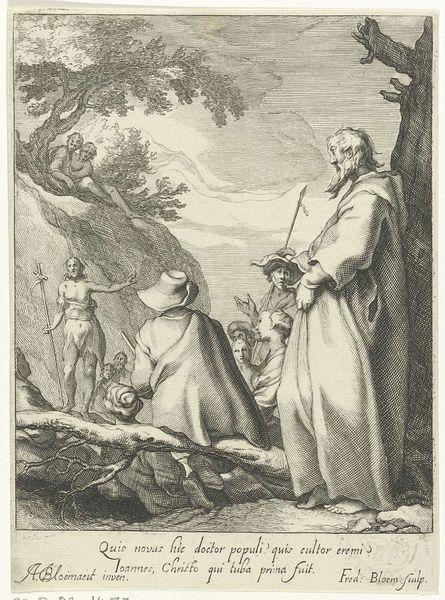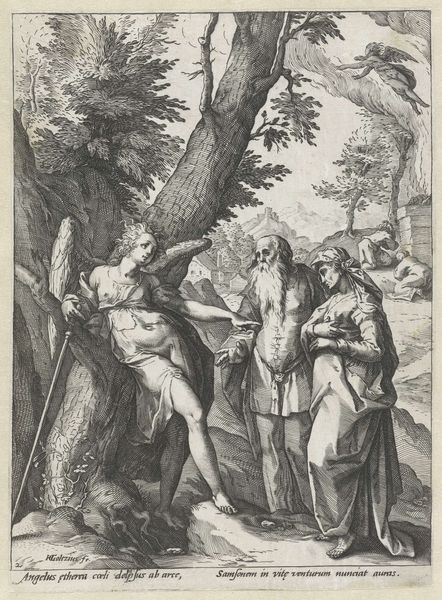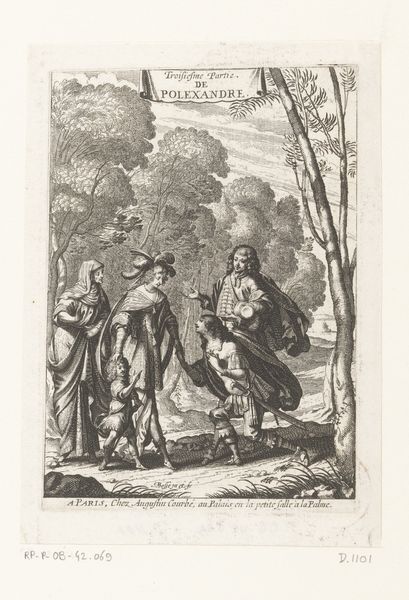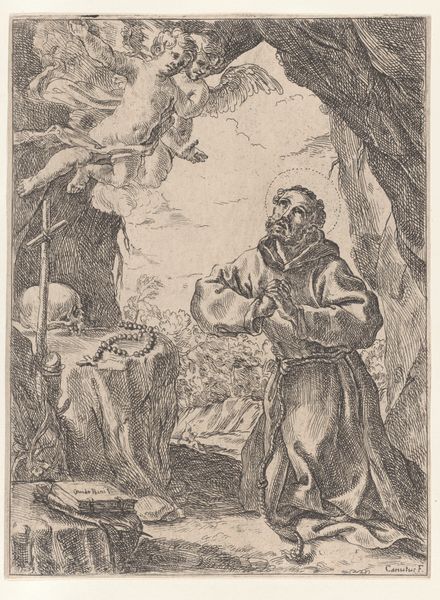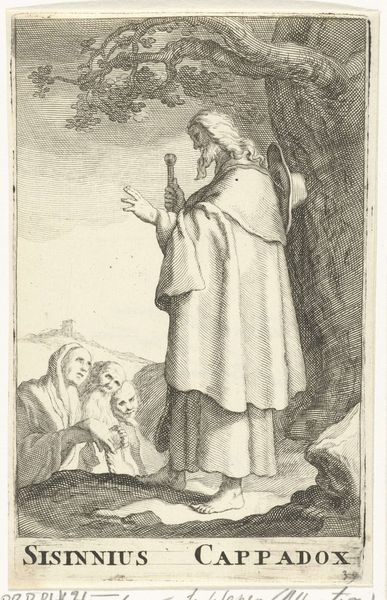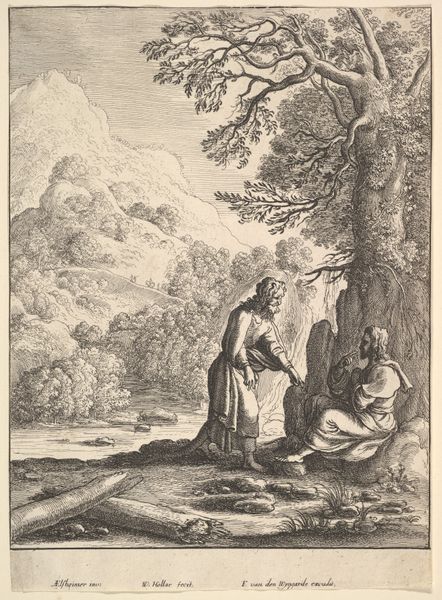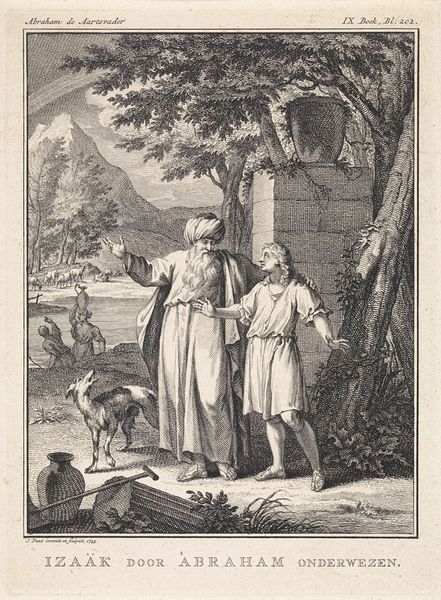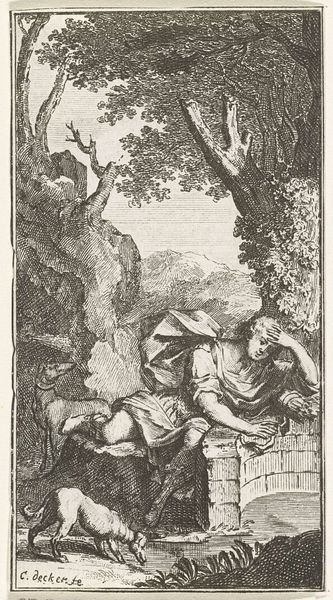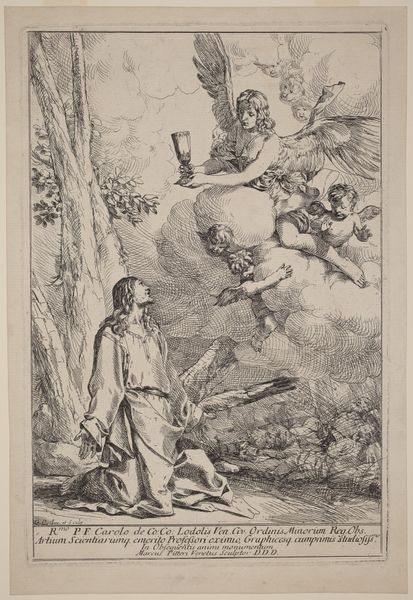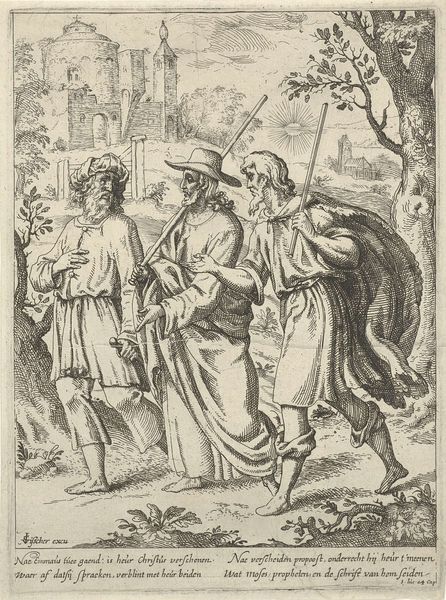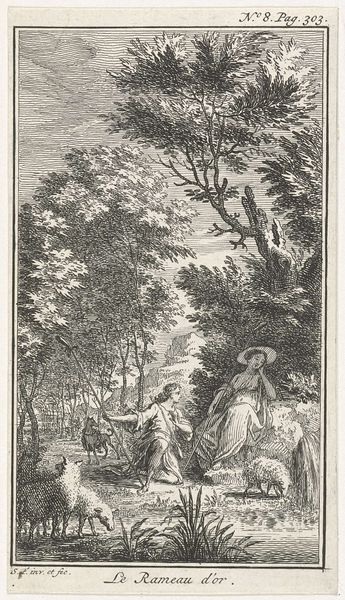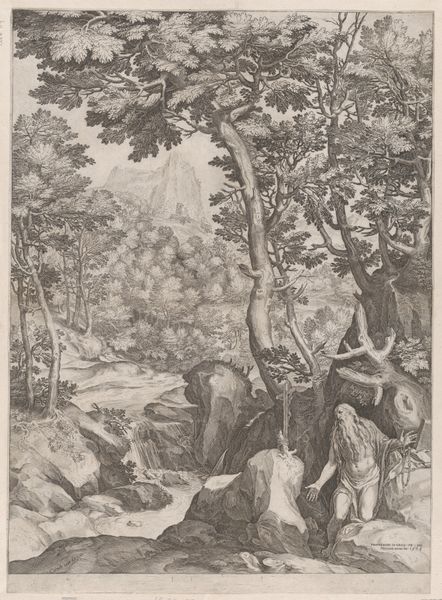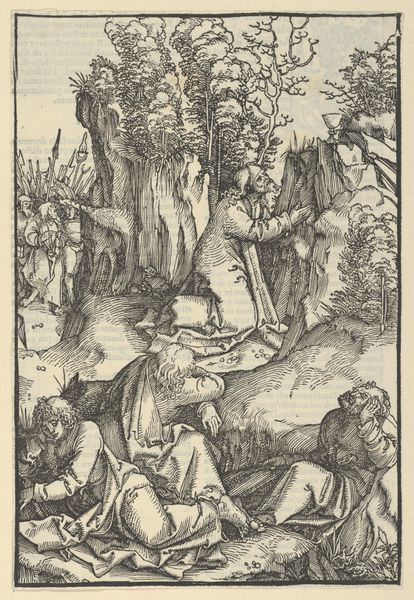
Dimensions: height 411 mm, width 542 mm
Copyright: Rijks Museum: Open Domain
This print, Franciscus ontvangt de stigmata, was made by Cornelis Cort around the 16th century, using the technique of engraving. Look closely, and you will see how the design is achieved through thousands of tiny cuts into the surface of a copper plate. The burin, a specialized tool held at an angle, is pushed through the metal, creating a small furrow. The depth and spacing of these lines determine the degree of light or shadow in the final image. It’s a slow, painstaking process demanding both technical skill and artistic vision. Consider how Cort would have labored over this plate, building up the image bit by bit. The dense network of lines gives the scene its dramatic intensity, as St. Francis receives the stigmata. Prints such as these played a vital role in disseminating images, spreading ideas and styles across Europe. They testify to the importance of craft processes in shaping cultural history, and their impact on social change.
Comments
No comments
Be the first to comment and join the conversation on the ultimate creative platform.
